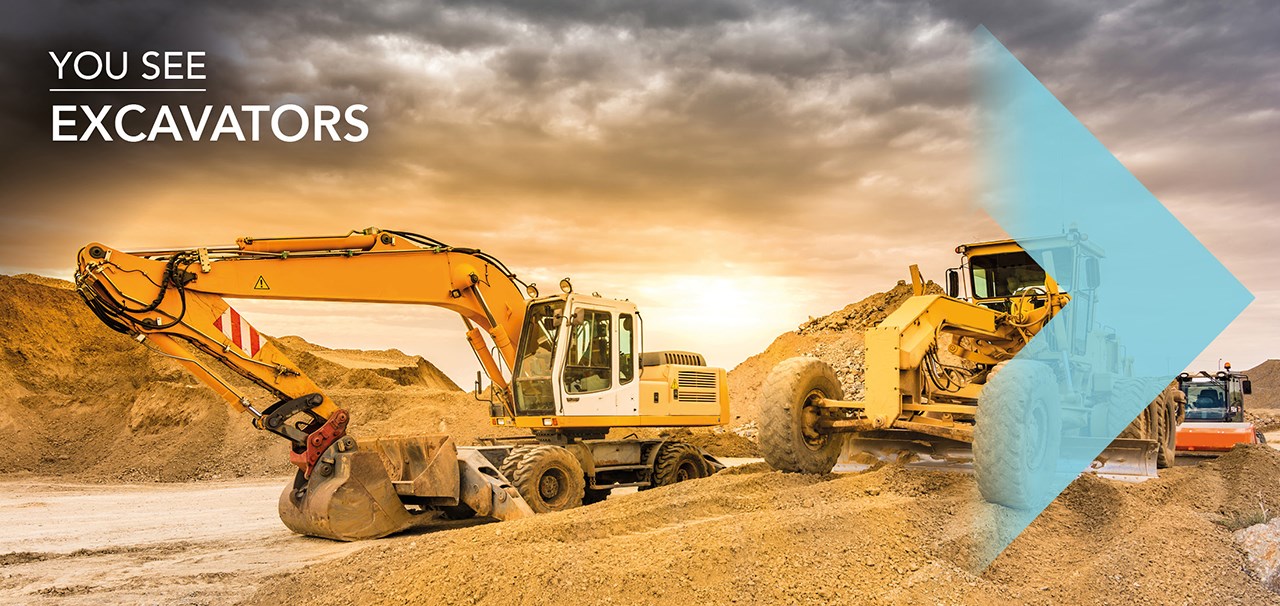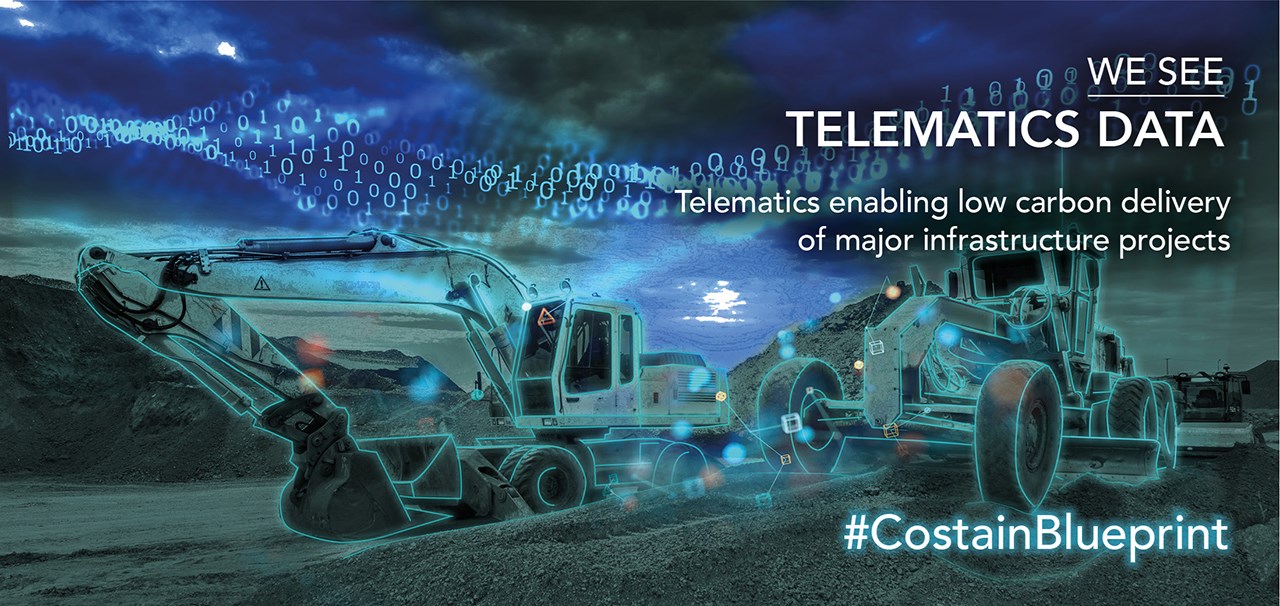
Reducing the construction machinery carbon footprint through data driven behaviours
In 2018 Costain was one of the first infrastructure companies in the UK to introduce air quality standards for plant machinery used on complex delivery projects nationwide, reducing the impact on the local environment and communities. This standard is now widely adopted across the industry. Since 2020 the consistent Group wide use of real time telematics data has been helping to further reduce construction machine carbon emissions by as much as 30%.
Just like a manufacturing factory floor, optimisation of equipment provides a step change in cost and carbon efficiency when delivering, upgrading, and operating an infrastructure network. Telematics enable the remote monitoring of machine use and the capture of operational data revealing how machines and vehicles are being operated, how fuel efficient they are, how much carbon they emit and if the drivers or operators are using energy saving functions.
Having this data to hand makes it easier to identify where and how to reduce air pollution by reducing inactive time and idling of construction machinery. It allows project teams to plan the use of machinery more effectively and to pinpoint hotspots, highlight where driver behaviours need to change and ultimately cost savings.
The data can also help encourage the right behaviours, as seen on the A14 project. According to manufacturer specification for the machines using eco-mode can reduce fuel consumption by between 20-25%. Eco-mode is a function which decreases the engine speed to reduce fuel consumption while increasing the hydraulic pump flow rate to compensate for operating speed, Costain has developed a behavioural change education programme to ensure practical emissions reduction solutions are understood and become an integral part of all projects.
The London Bridge Station Upgrade project, where Costain provided advisory, concept development, programme management and maintenance services, used telematics to monitor the use of plant machinery and provided specific eco-operator training to the team working on site.
Before the eco-operator training, the average monthly use of eco-mode as just 4%. Post training, telematics data over a five-month period showed an average eco-mode use of 33%, with some machines showing as high as 90%, an average increase of 29%.
In 2020 Costain introduced the use of telematics to equip each of its complex delivery projects to meet a 20% plant machinery idling reduction target and to become 100% emission free by 2035, as part of its Climate Change Action Plan.
In collaboration with all major plant and machinery supply chain partners Costain coordinated a contractual cross-industry plant data agreement and standard to ensure projects would benefit from a consistent and coherent data set and collection process to deliver sustainable business models and reduce carbon emissions and cost.
Costain has been able to demonstrate the value of collating and analysing telematics data at scale via its cloud based Intelligent Infrastructure Control Centre.
Collaborating with supply chain partners and through the roll out of a Resource Efficiency Matrix (REM), Costain has realised idling reductions and fuels efficiency achievements of over 40% on some projects, including the HS2 enabling works were some of the world’s first electric plant was trialled.
This data led approach aligns with the Construction Playbook policy on benchmarking to analyse information from past projects and programmes to support data driven decision making. The intelligence will help to influence policy and procurement strategies, encouraging even more data gathering from all parts of the supply chain to ensure better use of material and labour.
As one of the early adopters for low emission plant, Costain is now shaping future plant and machinery including all-electric excavators and diggers. Working with global plant and machinery manufacturers, Costain’s research and development capability is accelerating the widespread market availability of low and zero emission plant.
Closer to home, Costain continues to reduce the emissions from both its company car and car allowance fleet, with over 50% of company cars now ultra-low emission vehicles and charging points installed at office and project sites.




